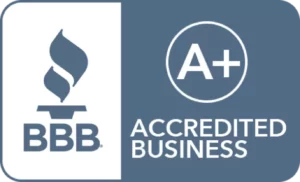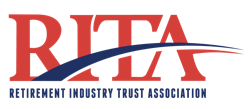A Self-Directed IRA is a type of IRA structure that allows the IRA holder (you) to have more control over your retirement funds. Unknown to some, not all Self-Directed IRAs are the same. The IRS allows you to use your Individual Retirement Account to make traditional investments. This includes stocks, bonds and mutual funds. Fewer individual retirement account holders are aware that the IRS also allows you to use retirement funds to make alternative investments. These include real estate, precious metals, tax liens, private business and much more tax-free and penalty-free!
SIMPLE IRA in a Nutshell
A SIMPLE (Savings Incentive Match Plan for Employees) IRA plan allows employees and employers to contribute to traditional IRAs set up for employees. Employees may choose to make salary-reduction contributions. The employer must make either matching or non-elective contributions. Contributions go to a retirement account or annuity set up for each employee.
A SIMPLE IRA plan account is an individual retirement account. It follows the same investment, distribution, and rollover rules as traditional accounts. Any employer (including self-employed individuals, tax-exempt organizations, and governmental entities) that have no more than 100 employees with $5,000 or more in compensation during the preceding calendar year can establish a SIMPLE IRA plan.
You can set up a plan effective on any date between January 1 and October 1 provided you (or any preceding employer) didn’t previously maintain a SIMPLE IRA plan. If you’re a new employer that came into existence after October 1 of the year, you can establish your plan as soon as administratively possible after your business came into existence.
All employees who receive at least $5,000 in compensation from you during any two preceding calendar years (whether or not consecutive) and who are reasonably expected to receive at least $5,000 in compensation during the calendar year are eligible to participate in the plan for that calendar year. Each eligible employee may make a salary-reduction contribution, and the employer must make either a matching contribution or non-elective contribution.
An employee may defer up to $15,500 in 2023, subject to cost-of-living adjustments for later years. Employees age 50 or over can make a catch-up contribution of up to $3,500, subject to cost-of-living adjustments for later years.
Contribution Types
With respect to employer contributions, the employer is usually required to:
- match each employee’s salary-reduction contribution on a dollar-for-dollar basis up to 3 percent of the employee’s compensation (not limited by the annual compensation limit); or
- make non-elective contributions of 2 percent of the employee’s compensation up to the annual limit of $330,000 for 2023, subject to cost-of-living adjustments in later years).
If you choose to make non-elective contributions, you must make them for all eligible employees whether or not they make salary-reduction contributions. With respect to the 3 percent match, you may elect to reduce the 3 percent matching contributions for a calendar year, but only if:
- the limit isn’t reduced below 1 percent
- the limit isn’t reduced for more than two years out of the five-year period that ends with (and includes) the year for which the election is effective; and
- you notify employees of the reduced limit within a reasonable time before the sixty-day election period during which employees can enter into salary-reduction agreements.
Usually, the same tax results apply to distributions from a SIMPLE IRA as to distributions from a regular individual retirement account.
Types of Accounts
There are essentially three types of Self-Directed SIMPLE IRAs:
1. Financial Institution Offered Self-Directed SIMPLE IRA
The most popular is the financial institution account. Most well-known financial institutions offer it, such as Bank of America and Wells Fargo. A Self-Directed SIMPLE IRA account lets the retirement account holder make investments the financial institution offers. These are typically financial related investments, such as stocks, mutual funds, and ETFs (Exchange Traded Funds). Even though these types of retirement accounts are called “Self-Directed IRA” accounts, they drastically limit what investments you can make. Typically, they don’t allow you to make non-traditional investments, such as real estate.
Why do the financial institutions limit the investment options available?
Financial Institutions that offer individual retirement accounts have no obligation to offer you the opportunity to make every allowable type of investments. For example, even though real estate is an IRS approved investment, an IRA custodian has no obligation to offer that investment option. Therefore, most financial institutions offering SIMPLE IRA accounts will have restrictions. Their investment options will be financial products the financial institutions offer.
These large, well-known institutions have a good reason for doing this. Such institutions earn fees from the sale of financial products. They don’t make money by allowing retirement investors to take out their funds and put it towards alternative investments from a third-party.
2. Custodian Controlled Self-Directed SIMPLE IRA
IRA Financial Trust Company has partnered with Capital One Bank to offer you full IRA custodial services for traditional and alternative asset investments. IRA Financial is the only self-directed retirement provider to open LLC bank accounts for our clients. We will open your LLC bank account to make the process quick, easy and cost-effective.
Capital One Bank will hold all your IRA funds before you direct your funds for investment.
With a custodian controlled Self-Directed SIMPLE IRA, whatever investment you want to make is carried out through a custodian. In other words, you direct the IRA custodian, IRA Financial Trust, to make the investment directly. So, the IRA Custodian makes all transactions, such as paying expenses or depositing checks.
3. “Checkbook Control” Self-Directed SIMPLE IRA LLC
IRA Financial Trust is proud to offer Checkbook IRA custodial services. This is in addition to full service retirement account administration services, all for one low price. There are no transaction or asset valuation fees. IRA Financial Trust Company is one of the few full-service custodians who specialize in establishing Checkbook Control IRA LLC accounts.
With a “Checkbook Control” Self-Directed SIMPLE IRA, you have control over your funds. In other words, you don’t need a custodian to approve your investment opportunities. You can make investments quickly and easily, all through your Self-Directed SIMPLE IRA LLC bank account. It’s important to note that this also means more responsibility.
The Checkbook SIMPLE Individual Retirement Account Format
- Your account is set up as a Self-Directed account with IRA Financial Trust
- Your current retirement account capitalizes the funds you roll over to your new SDIRA account
- The funds go to Capital One Bank
- A Limited Liability Company (LLC) is created and your new account purchases all the membership units/interests
- Now, your money is in an LLC
- You start investing
“Checkbook Control” has many benefits.
- Eliminate custodian delays
- No hefty transaction fees and retirement account valuation fees
- You can act quickly on investment opportunities you understand
Get in Touch
If you have any questions, please give us a call at 800.472.1043. You can also fill out a contact form and we can get in touch with you!











